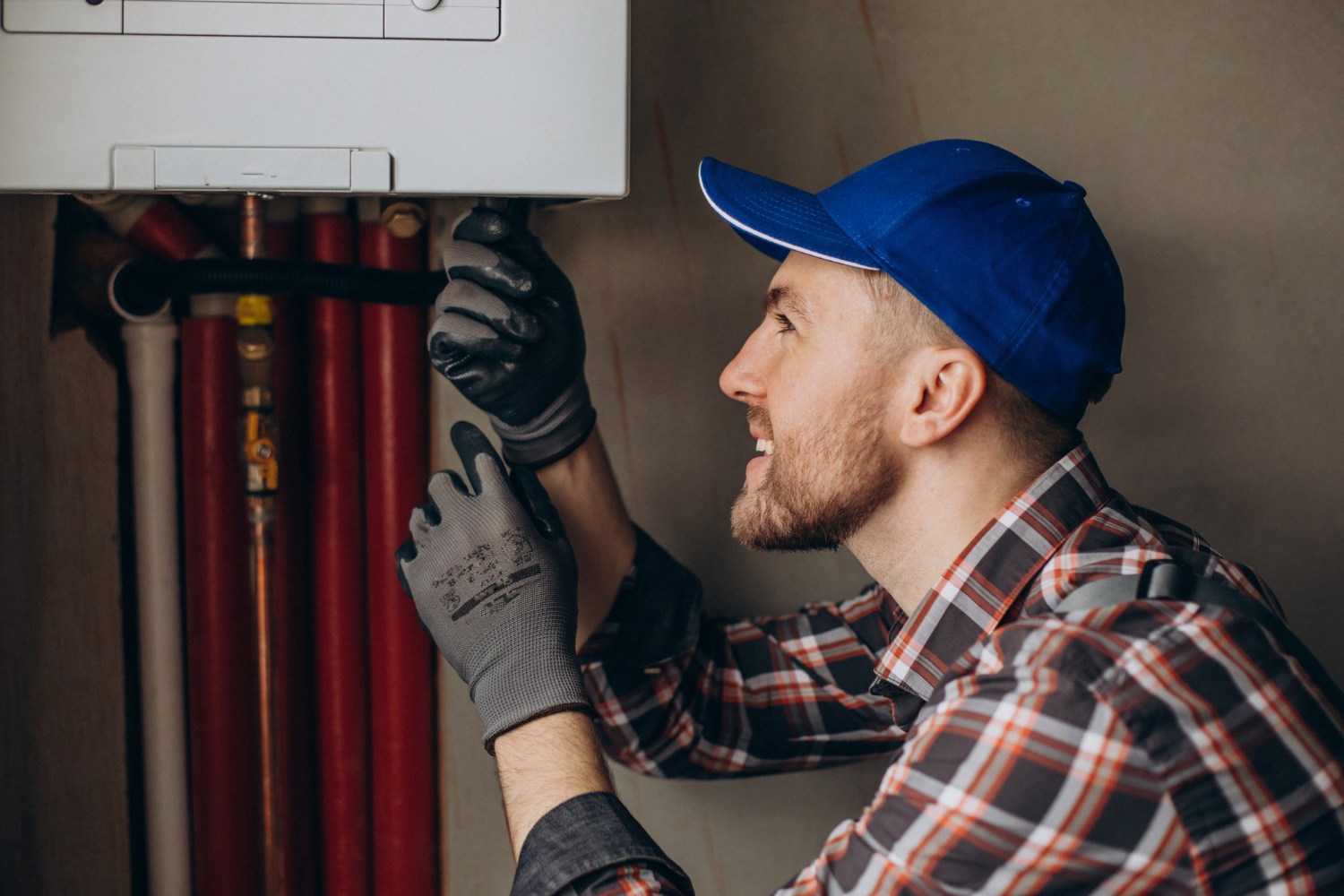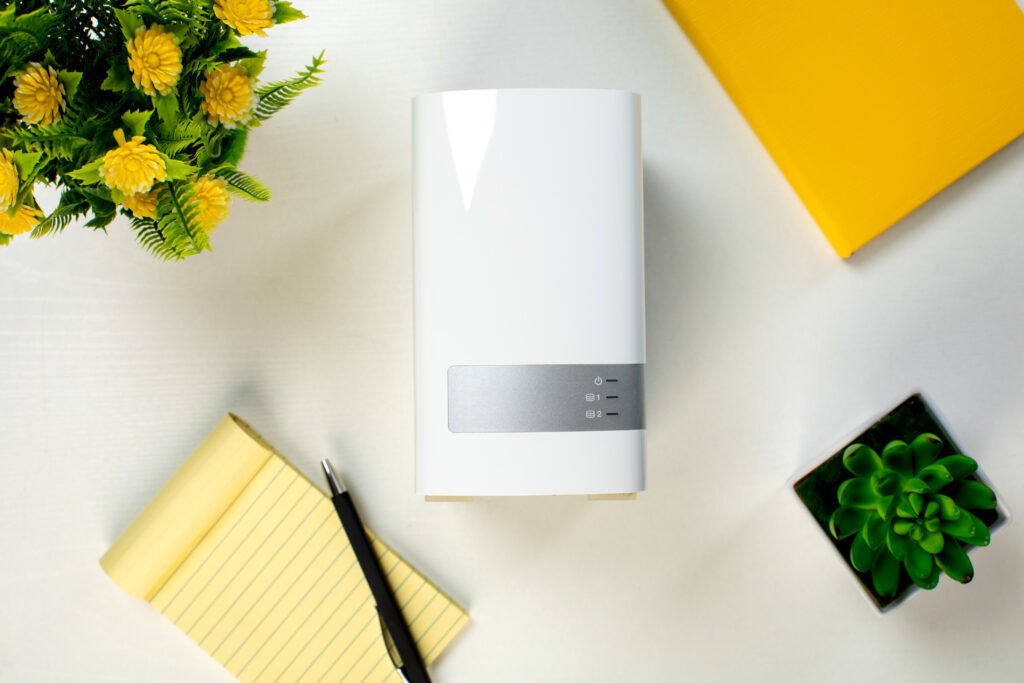A Tankless Water Heater Might Be the Upgrade You’ve Been Looking For
Have you ever had the hot water run out while you were in the shower because your old water heater just couldn’t keep up? Or that you dreaded getting your energy bill after a month of high water use? If so, then it may be time to make the switch to a tankless water heater.
Thank you for reading this post, don't forget to subscribe!Unlike traditional water heaters which store and heat water, tankless models heat water on demand. This revolutionary design guarantees that you’ll never run out of hot water and you’ll enjoy maximum energy efficiency as well as valuable space saving.
In this guide, we’re going to examine the advantages of tankless water heaters, what you should look for when you are buying one, the top models that are available these days, and some tips for installing and maintaining your heater as well. You’ll have all the information you need to make a confident decision by the end.
What Makes a Tankless Water Heater Worth It?
On-demand water heaters, or tankless water heaters, are widely used for a good reason. Here are some of the reasons to jump on the bandwagon.
Unlimited Hot Water
Say goodbye to cold showers. A tankless water heater delivers hot water as it’s needed, when it’s needed, without the restriction of the size of a holding tank.
Energy Efficiency
Because they only heat water when it’s requested, tankless heaters are more energy efficient than traditional water heaters, which burn fuel all day long keeping a large tank of water hot. In fact, the U.S. Department of Energy says that homes with tankless water heaters save between 24-34% more energy than homes equipped with conventional water heaters.
Space-Saving Design
Tankless heaters are small and take up less space than water heaters with storage tanks, making them a perfect choice for smaller homes where space is limited.
Long Lifespan
A conventional tank water heater generally lasts for 10–15 years, whereas a tankless system with proper maintenance can last 20 years or longer.
Reduced Risk of Water Damage
Because they don’t have to store gallons of water, tankless systems lower the risk of leaks and water damage in your home.
Selecting the Perfect Tankless Water Heater
But before we get started with the reviews, let’s explore of all the key features that make a good tankless water heater.
Flow Rate (GPM)
The flow rate — in gallons per minute (GPM) — is what you actually need to choose a tankless hot water heater. For example, if you want to run two showers and a dishwasher at the same time, you will need a higher GPM unit (e.g., 7–9 GPM).
Energy Source
Tankless heaters are available as gas and electric units. Gas models typically have higher flow rates and are better suited for larger households whereas electric models are more compact and easier to install and suitable for smaller homes.
Energy Efficiency Rating
Look for an Energy Factor (EF) or Uniform Energy Factor (UEF) rating to determine how efficient the system is. The higher the score, the more the energy savings.

Installation Requirements
Also think about whether your home is ready for your energy source of choice (you may need gas lines or electrical work added).
Budget
Tankless water heaters are more expensive up front, but can save you money when it comes to energy. Models are priced from $500 to $2,500, depending on size and features.
Best Tankless Water Heaters of 2025
So to help you find the product that suits your specific needs, we have reviewed some of the top and the best tankless water heaters on the market in aspects of performance, durability, and customer satisfaction.
Rinnai RU199iN
Key Features:
- 11 GPM maximum flow rate
- Powered by Natural gas High energy efficiency
- On demand hot water recirculation Technology
- High-altitude compatibility
Why It’s Great:
This is a big room air purifier. The high floor rate also allows you to have many faucets running at the same time, and it is Energy Star approved so it will even save you big bucks on your energy bill.
Average Price: $1,300
- Stiebel Eltron Tempra 24 Plus
Key Features:
5 GPM flow rate
- Completely electric and self-modulating technology
- Sleek, compact design
- Digital temperature display
Why It’s Great:
Apartment and small-home owners can’t get enough of the Tempra 24 Plus. It’s very energy-efficient and installs easily.
Average Price: $750
EcoSmart ECO 27
Key Features:
- 6.5 GPM flow rate
- Electric with energy savings technology and self modulating power.
- Compact and budget-friendly
Why It’s Great:
This is a no frills machine that performs consistently and is budget friendly. It’s a good pick for medium homes and people who want to save up front while saving energy.
Average Price: $550
Installation & Maintenance Hints
Follow these tips to keep your tankless water heater running at peak performance levels and lasting for a long time:
Utilize a Professional Installer: You can install the firebox yourself, but having a professional install it is the best way to guarantee that your unit is properly installed and that it meets local codes.
Decalcify Regularly: Minerals may reduce the performance of the steam iron. The system should be flushed annually, especially if you have hard water.
Filter Cleaning Cleans Screens: Helps prevent plugging and provides uniform flow rates.
Inspect it Regularly: Inspect gas lines, wiring and venting to ensure there’s nothing loose or frayed.
Tankless vs. Conventional Water Heaters: Cost Comparisons
Tankless water heaters may require an upfront investment, but lasting savings can make them worth it.
Upfront Costs
- Cost of installing a tankless hot water heater: $500-$2,500
- Conventional water heater installed: $400 to $1,600
Operational Costs
According to Energy. gov, gas tankless water heaters save the typical household about $108 per year, while electric tankless water heaters yield savings of around $44 per year over their traditional counterparts.
Lifespan
- Tankless water heaters have a 20 year lifespan
- The average lifespan of a typical water heater averages 10 to 15 years
Bottom Line
Tankless systems are more expensive at the onset, but savings in energy costs, length of service, and, of course, comfort can make the investment worthwhile for some homeowners.
Frequently Asked Questions: Tankless Water Heaters
Is a whole house tankless water heater big enough to provide for the entire home?
Yes, so long as you select a model with the right GPM for your home’s GPM requirement. For bigger families that need extra space, there is the potential to buy multiple units.
Do tankless water heaters make noise?
Frequent models tend to run silently, but you can expect to hear some noise during peak usage.
Does a tankless water heater work in cold climate?
Yes, but consider models with freeze protection or install the units indoors to avoid problems.
Time to Transform your Home with a Tankless Water Heater
A tankless water heater is not simply an upgrade; it’s an investment in convenience, efficiency, and sustainability. Whether you want endless hot water for a large family or are just trying to save some money on energy bills, this updated take on water heating can be a good investment.
If you’re ready to make the change yourself, take a closer look at the best models mentioned above, and enjoy the benefits of having hot water when you need it.



